- Home
- Alison Weir
The Tower Is Full of Ghosts Today Page 2
The Tower Is Full of Ghosts Today Read online
Page 2
The other group had caught up with them. Jo looked for the pale girl, but there was no sign of her. Then she noticed her at the back. She was trembling visibly, and on her face was an expression of utter fear. Yet no one was taking any notice of the poor girl. Just then, a man moved in front of her, and when Jo looked again, the girl had disappeared from sight. Jo looked here and there for her, but she had gone. Where was she? Who was she? There was no time to speculate because their guide was leading them towards the Chapel Royal.
Jo sat in the pews with the group. She heard not a word that the guide was saying. She could not get that haunted face out of her head; she kept seeing those terrified eyes, that unearthly white face. She felt chilled, despite the warmth of the day. Was she just being fanciful, or had she really seen a ghost? Was Anne Boleyn condemned to walk the place where she had died, even in the guise of a tourist? Yet reason dictated that she be rational. How could a historian like herself tell anyone that she thought she had seen the ghost of Anne Boleyn? Imagine the reaction! She would never live it down. And yet . . . And yet, there had been something uncanny about the pale girl from the first. It was as if she had been surrounded by silence in a teeming world.
She pulled herself together at the sound of clapping. The group were showing their appreciation of what had been a great tour, and it was time to express her own thanks. She pressed a note into the guide’s hand as they walked out of the chapel. ‘You were amazing!’ she said.
‘I noticed you were a little distracted at the end,’ the woman told her, still in that lilting French accent. ‘I saw her too. I have seen her several times. She is a very sad lady. I do not know what she is looking for.’
Jo was astonished. ‘It sounds a silly question, but is she real?’
‘She is real to those who see her,’ the guide said, with a slight smile. ‘Now I must go.’ She turned to the group. ‘Thank you all. I have enjoyed showing you around. You have been wonderful company.’ To more clapping she walked back into the chapel.
‘In ten minutes, everyone, please be back at the meeting point,’ Jo cried, then hurriedly made her way there. As the tour leader, she wanted to reach it first. As she hastened past the Medieval Palace Shop, she was still thinking about the pale girl and what the guide had said.
At the meeting point a lady in rather drab Tudor dress was looking at her watch and frowning. Seeing the logo on Jo’s badge, she hurried over and shook her hand. ‘Jo Maddox? I’m so sorry I was late. I don’t blame you for going ahead without me. I missed my train.’
‘I’m sorry, I think there’s been a mix up,’ Jo said, confused.
‘No, dear. I’m Sue. You booked me for the Anne Boleyn walk.’
Discover the
Read on for the first chapters of Alison Weir’s novels about Henry VIII’s first three wives
A Spanish princess.
Raised to be modest, obedient and devout.
Destined to be an English queen.
At sixteen years old, Catalina is alone among strangers. Six weeks from home across treacherous seas, everything is different: the language, the food, the weather.
And Catalina can find no comfort in any of it. She misses her mother. She mourns her lost brother. She cannot trust even those assigned to protect her.
Katherine of Aragon. The first of Henry’s queens.
Her story.
Turn the page to read the first chapter . . .
Available in Ebook and Paperback now.
Chapter 1
1501
The coast of England was closer now. Standing at the balustrade of the deck, high above the stern of the ship, with tendrils of red-gold hair whipping about her face, Catalina could see green and brown hills and the spires of churches, with houses huddled together beside them; and, at a dizzying distance below, between the land and the rolling vessel, the grey churning sea. How different it all looked from La Coruña, with its warm blue waters and its mighty Tower of Hercules, or the dramatic wide sweep of the bay of Laredo! Everything was going to be different from now on.
Her maid-of-honour and dear friend, Maria de Salinas, was standing beside her.
‘It cannot be long now till we come into port,’ Catalina said. ‘When I think how many years I have dreamed of coming to England, I cannot quite believe I am nearly there. I thank God that you are with me, Maria. I would not want to face this alone.’ There was no one else to whom she would have admitted that.
‘And I am glad of Your Highness being with me,’ Maria replied. She was two years older than Catalina, and they had been friends all their lives. It was typical of Maria to have pulled off her cap and let her rippling long night-black hair blow free in the wind. She was almost dancing with anticipation, her large eyes luminous as she gazed at the land ahead. Catalina reminded herself that Maria was also going into the unknown. It was expected that she and the other young ladies in attendance on their infanta would be found well-born husbands in England. But where Catalina was facing the future with a certain trepidation, Maria could barely contain her excitement.
‘Soon I will come face to face with Prince Arthur,’ Catalina said. She had been told countless times that her betrothed was a golden prince, beautiful and graceful, with many excellent qualities, and that the English people hailed him as their great hope for the future. ‘I pray that I may please him.’ And that all will be well.
‘Judging by his letters, he is as eager to meet your Highness as you are to see him. You are lucky to have a husband who loves you.’ Maria smiled encouragingly – and not a little enviously.
‘But how can he love me when he has never met me?’ Catalina asked, voicing a concern she had kept to herself for a long time. ‘Was he that much taken by my portrait?’ Master Miguel, her mother’s court painter, had taken an excellent likeness.
‘He could hardly have failed!’ Maria said. ‘You are so pretty.’
‘He is just fifteen!’ Catalina retorted. ‘He is nearly a year younger than I am. I think he has been told what to write, just as I was. And—’ she bit her lip, ‘I fear he is young for his years. Remember how my coming was postponed for a year until he was ready to be married, and then it was postponed again?’ That had been a strange business, veiled in secrecy. Not even to Maria would Catalina confide her secret suspicions that all might not be quite well with Arthur – and that some dreadful deed had finally made possible her coming to England. It was as if saying them out loud would confirm them. ‘At least it gave me time to learn French!’ she said brightly. King Henry’s Queen and his mother, the Lady Margaret, had specially requested it, as they spoke no Spanish or Latin. And they had urged that Catalina cultivate a taste for wine, as the water in England was undrinkable. She had duly complied. She had expected many such requests and instructions to prepare her for her life in England, but there had been just one more, one that had immeasurably troubled her.
‘King Henry wants me to forget Spain,’ Catalina revealed. ‘He thinks I will be happier not remembering it. Dr de Puebla wrote that to the King my father.’ Dr de Puebla was Spain’s resident ambassador in England, and it was he who had negotiated her marriage.
‘King Henry means well, I am sure, Highness,’ Maria soothed.
‘I can never forget my homeland,’ Catalina declared, tears welling as visions of the land of her birth came to mind, ‘but I am determined to be a good Englishwoman.’ She blinked the tears away.
‘We must make ready,’ she said. And then, mimicking her duenna, ‘I must always remember that, as soon as I set foot on English soil, I am no longer the Infanta Catalina but the Lady Katherine, Princess of Wales!’ Catalina had been told that her name must be anglicised to please her husband’s future subjects, for one day, when King Henry died and Prince Arthur succeeded to the throne, she would be Queen of England.
Maria laughed – Catalina had Doña Elvira to the life! Catalina smiled, but as she went ah
ead of Maria down the steep stairs to the sterncastle, where she and the ladies of her suite had been allocated cabins, she was dutifully resolving to think of herself as Katherine from now on.
The cabins were cramped and creaking, with barely room for a feather bed, and they were unpleasantly stuffy after four days at sea. Mercifully it had been a smooth crossing, unlike the earlier one from La Coruña. It was hard to believe that she had set out on her wedding journey more than five weeks ago, excited at the thought that the long-awaited new life was about to begin, yet grief-stricken at leaving her own country and the mother she loved and revered.
Four days on raging, storm-tossed seas had made homesickness pale into insignificance beside the fear of drowning and the constant irregular buffeting of the waves. Katherine and her ladies had been horribly, disgustingly sick. All those hours she had intended to devote to improving her English had been spent lying prone, clinging to her wooden cot as the ship bucked and dipped, and praying in terror for the tempest to stop. Her greatest fear had been that the storm had been sent by God as punishment for the great sin that had made her marriage possible, and that they would all be drowned. But God, it had seemed, was reserving His vengeance for another day. Never would Katherine forget the relief she had felt when the ship’s master had managed by a miracle to dock at Laredo; and she had been full of devout thanks for the four weeks’ respite there while they were forced to wait for the seas to calm. She had hated boarding the ship again, dreaded entrusting herself once more to the unpredictable temper of the waters of the Bay of Biscay and the English Channel. Mercifully they had been calm, but she had still been horribly seasick.
Katherine and Maria found Doña Elvira in the largest cabin, which Katherine herself occupied. Her duenna came from an old and respected Castilian family, and was devoted to Queen Isabella and determined to do her duty by Isabella’s daughter. In the absence of Katherine’s mother, Doña Elvira’s word was now law in the Infanta’s household. She was a stern, proud woman in her late fifties, with a disdainful eye and a sharp tongue, too vigilant for comfort – and too old to remember what it was to be young and bursting with life! And yet, for all her strictness and rigid outlook on life, the Queen trusted her implicitly, and had told Katherine that she must do so too.
Katherine watched as Doña Elvira heaved her bulk around the narrow spaces of the cabin and cast a critical eye over the four gowns laid across the bed and the travelling chest, gowns of red and gold damask, woven silk, velvet of the costliest black, cloth of gold. Queen Isabella had commanded that her daughter go to England dressed as befitted a future queen, and had paid for a sumptuous trousseau that reflected the glory and majesty of Spain. The chests that lay in the ship’s hold were packed with more magnificent gowns, undergarments edged with fine blackwork lace, hoods of velvet with biliments of gold, silver or pearls. There were night robes bordered with lace for summer and fur for winter, cloth stockings and lined kirtles, as well as the stiff, decorous Spanish farthingales that belled out the skirts of Katherine’s gowns. Also packed in locked and weighty coffers was the gold and silver plate that was to form part of her dowry, and her jewellery. She had exclaimed in amazement when her mother had shown her the intricate bejewelled necklaces, the ornate collars, the gold chains, the crucifixes and the brooches that had been provided for her.
Then Queen Isabella had laid across her daughter’s outstretched hands a beautifully embroidered christening robe. ‘For your children,’ she had said. ‘I pray that God blesses you with many fine sons. I hope you will be the source of all kinds of happiness in England.’
Katherine felt like weeping at the memory.
‘This one,’ the duenna said, pointing to the damask, ‘if your Highness approves?’
‘Of course,’ Katherine agreed. Her mother had instructed that she must trust Doña Elvira’s judgement in all things.
She stood patiently while three of her maids – Maria de Salazar and twin sisters called Isabel and Blanche de Vargas – stripped her to her farthingale and chemise, dressed her in a kirtle and the rich gown, laced up the back and tied on the wide, hanging sleeves. Doña Elvira herself placed around Katherine’s neck the heavy gold collar adorned with gem-encrusted ‘K’s and pomegranates, the Princess’s personal badge.
‘The pomegranate stands for fertility,’ Queen Isabella had said. ‘Your first duty to Prince Arthur will be to bear him sons.’
Katherine was ten when the collar was made, and ensuring the royal succession had been far in the future. But now she wished she knew more about the process of getting sons. Her mother and her duenna had told her that it was a wife’s duty to submit to the will of her husband in all things, and that children were born at his pleasure. Her mother, with many references to Scripture, had told her a little about how children were begotten, but there was still much mystery surrounding the whole business. Isabella’s obvious embarrassment and the euphemisms she had used had left Katherine confused, and showed that decent people did not like to talk about such things. And yet, in a few weeks, she would be married, and know the whole truth.
Doña Elvira lifted up a length of the finest white lawn, exquisitely hemmed. ‘Her Majesty’s command was that your Highness be veiled in public until you are married,’ she reminded her charge, as she combed Katherine’s long hair and arranged the veil over her golden head. And so it was that, when the Princess emerged on the main deck to see sailors leaping across to the busy quayside to fling stout ropes around the bollards there and secure the ship in dock, her view of Plymouth, the crowds gathered to welcome her, and the banners gaily flapping in the breeze, was a misty one, glimpsed through the folds of her veil.
Once the gangplank was in place, her train began disembarking, led in stately fashion by the hero of Granada, the Count de Cabra, who commanded her escort. There followed Katherine’s first chamberlain, Don Pedro Manrique, who was Doña Elvira’s husband, the second chamberlain, Juan de Diero, Katherine’s chaplain, Alessandro Geraldini, three bishops and a bevy of ladies, maids, gentlemen and servants, all tricked out in their finest clothes and liveries. Never let it be said that the Spanish sovereigns, their Most Catholic Majesties King Ferdinand and Queen Isabella, had sent their daughter lacking in any way into England!
Katherine came last, escorted by Doña Elvira, whose bulk was resplendent in yards of green damask and black velvet, her grey hair covered by a voluminous hood. After waiting all her life – or so it seemed – for this moment, Katherine could hardly believe that it had arrived. She carried herself with conscious dignity and pride, aware that she was representing her parents and Spain, the greatest power in Christendom. Ahead of her swelled the sound of cheering voices, and when she stepped on land, even though she felt a little giddy after four days in motion on the sea, she knew a sense of triumph tempered with awe. This was the kingdom of which she would one day be queen. God send that she would be worthy of it, and of the unknown Prince, her husband.
The Mayor of Plymouth and his brethren, splendid in their furred scarlet robes, were waiting to receive her, bowing low.
‘Welcome, your Highness!’ the Mayor boomed. ‘Welcome to England!’
‘I thank you, good sirs,’ Katherine replied, inclining her head. She had practised the words on board ship. Her English was not very good, and it was heavily accented, but she was determined to master it.
The people were roaring their approval. Some were gaping and pointing at the dark-skinned Moorish servants in her Spanish retinue, but most were jostling each other to gain a better sight of their new Princess. Katherine felt humbled to be the focus of such wild excitement, even though she knew that her father considered the King of England lucky to have a Spanish bride for his son.
‘They could not have received your Highness with greater joy had you been the Saviour of the world!’ exclaimed one of Katherine’s gentlemen. Doña Elvira frowned. Men were not supposed to address the Princess familiarly. But even the stern due
nna was gratified by her charge’s reception.
‘His Grace the King sends his greetings, my lady,’ the Mayor said. ‘He looks forward to welcoming you himself in London, with Prince Arthur. But for now, at your pleasure, a great feast awaits your Highness.’
Katherine was feeling a little disorientated; the ground was still tilting disconcertingly. But she must not let that detract from the good impression she meant to make. ‘Please thank the Mayor for me,’ she said to Don Pedro Manrique, who spoke some English. ‘I will be honoured to be his guest.’
Behind her there were shouts as the crew unloaded her possessions from the ship. The Count de Cabra was watching anxiously as the coffers containing the hundred thousand crowns that were the first instalment of Katherine’s dowry were brought ashore. It was his responsibility to guard them at all times.
The Mayor, beaming and puffed up with pride, took an obvious pleasure in escorting Katherine on foot through the celebrating, cheering crowds to the feast. Her first impressions of Plymouth and its inhabitants were startling. In Spain she had been used to seeing stone facades on houses built around patios, but here there were streets crammed with stout, half-timbered houses, some – the more prosperous – with glittering diamond-shaped panes in the windows, and most with roofs of thatch above upper storeys that overhung the narrow, crowded thoroughfares. The smell of fish pervaded everywhere in this bustling port. She stared as women openly greeted the homecoming sailors with kisses on the mouth – and in public too! That would never be tolerated in Spain, where ladies led almost cloistered lives and thought themselves fortunate to be allowed glimpses of the world from their balconies.

 Richard III and the Princes in the Tower
Richard III and the Princes in the Tower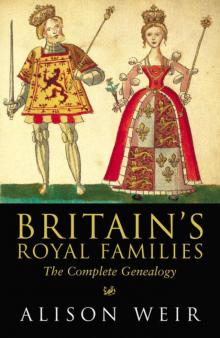 Britain's Royal Families: The Complete Genealogy
Britain's Royal Families: The Complete Genealogy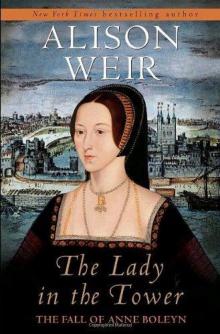 The Lady in the Tower: The Fall of Anne Boleyn
The Lady in the Tower: The Fall of Anne Boleyn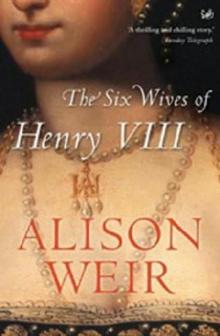 Six Wives of Henry VIII
Six Wives of Henry VIII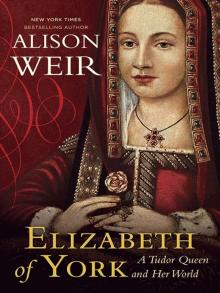 Elizabeth of York: A Tudor Queen and Her World
Elizabeth of York: A Tudor Queen and Her World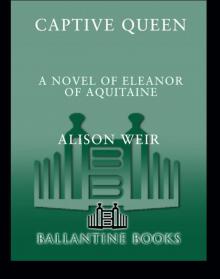 Captive Queen
Captive Queen Innocent Traitor
Innocent Traitor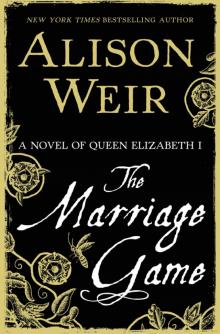 The Marriage Game
The Marriage Game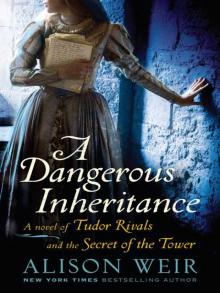 A Dangerous Inheritance
A Dangerous Inheritance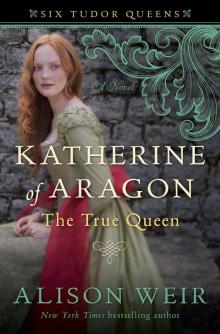 Katherine of Aragón: The True Queen
Katherine of Aragón: The True Queen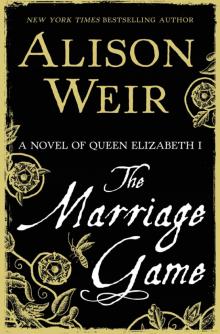 The Marriage Game: A Novel of Queen Elizabeth I
The Marriage Game: A Novel of Queen Elizabeth I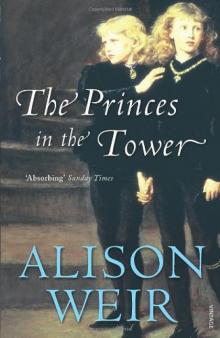 Princes in the Tower
Princes in the Tower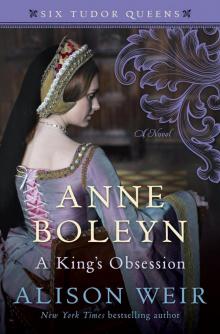 Anne Boleyn: A King's Obsession
Anne Boleyn: A King's Obsession Traitors of the Tower
Traitors of the Tower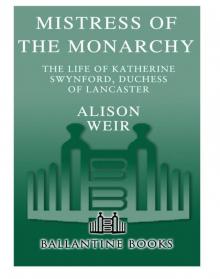 Mistress of the Monarchy: The Life of Katherine Swynford, Duchess of Lancaster
Mistress of the Monarchy: The Life of Katherine Swynford, Duchess of Lancaster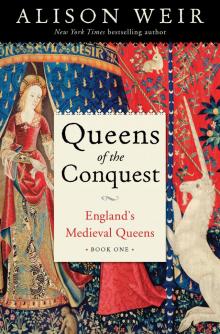 Queens of the Conquest: England’s Medieval Queens
Queens of the Conquest: England’s Medieval Queens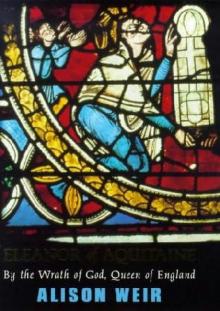 Eleanor of Aquitaine: A Life
Eleanor of Aquitaine: A Life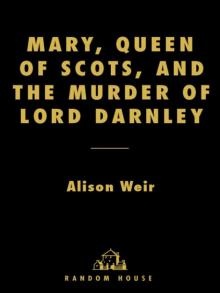 Mary, Queen of Scots, and the Murder of Lord Darnley
Mary, Queen of Scots, and the Murder of Lord Darnley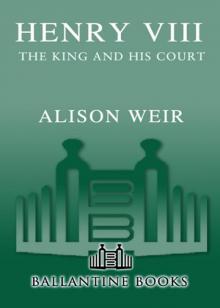 Henry VIII: The King and His Court
Henry VIII: The King and His Court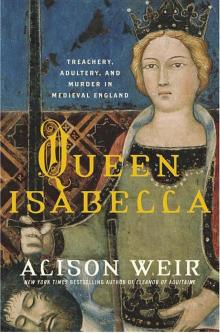 Queen Isabella: Treachery, Adultery, and Murder in Medieval England
Queen Isabella: Treachery, Adultery, and Murder in Medieval England Katheryn Howard, the Scandalous Queen
Katheryn Howard, the Scandalous Queen Arthur- Prince of the Roses
Arthur- Prince of the Roses The Wars of the Roses
The Wars of the Roses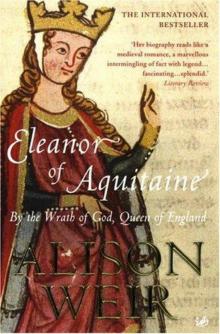 Eleanor of Aquitaine: By the Wrath of God, Queen of England
Eleanor of Aquitaine: By the Wrath of God, Queen of England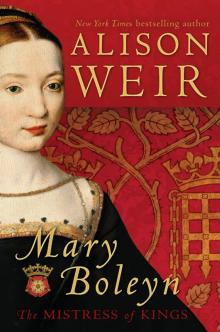 Mary Boleyn: The Great and Infamous Whore
Mary Boleyn: The Great and Infamous Whore Jane Seymour: The Haunted Queen
Jane Seymour: The Haunted Queen Anna of Kleve, the Princess in the Portrait
Anna of Kleve, the Princess in the Portrait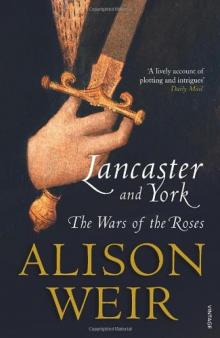 Lancaster and York: The Wars of the Roses
Lancaster and York: The Wars of the Roses The Grandmother's Tale
The Grandmother's Tale The Princess of Scotland (Six Tudor Queens #5.5)
The Princess of Scotland (Six Tudor Queens #5.5)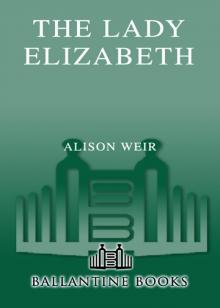 The Lady Elizabeth
The Lady Elizabeth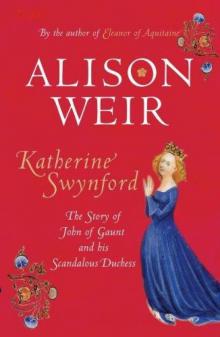 Katherine Swynford: The Story of John of Gaunt and His Scandalous Duchess
Katherine Swynford: The Story of John of Gaunt and His Scandalous Duchess The Curse of the Hungerfords
The Curse of the Hungerfords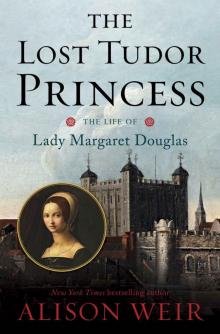 The Lost Tudor Princess: The Life of Lady Margaret Douglas
The Lost Tudor Princess: The Life of Lady Margaret Douglas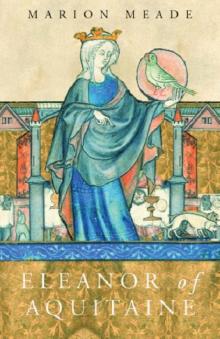 Eleanor of Aquitaine
Eleanor of Aquitaine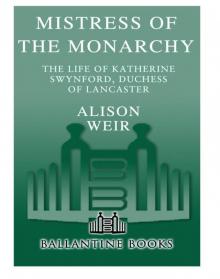 Mistress of the Monarchy
Mistress of the Monarchy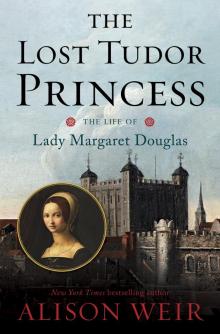 The Lost Tudor Princess
The Lost Tudor Princess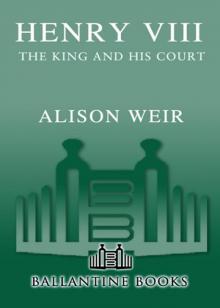 Henry VIII
Henry VIII Anne Boleyn, a King's Obsession
Anne Boleyn, a King's Obsession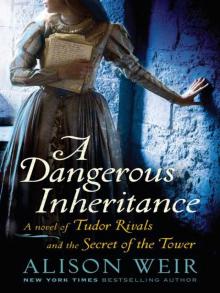 A Dangerous Inheritance: A Novel of Tudor Rivals and the Secret of the Tower
A Dangerous Inheritance: A Novel of Tudor Rivals and the Secret of the Tower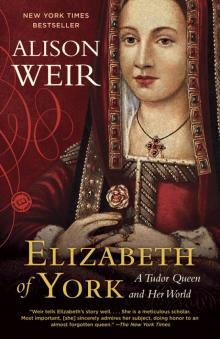 Elizabeth of York
Elizabeth of York Katherine of Aragon, the True Queen
Katherine of Aragon, the True Queen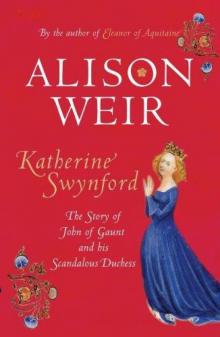 Katherine Swynford
Katherine Swynford Wars of the Roses
Wars of the Roses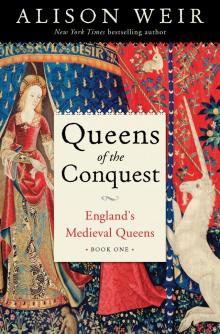 Queens of the Conquest
Queens of the Conquest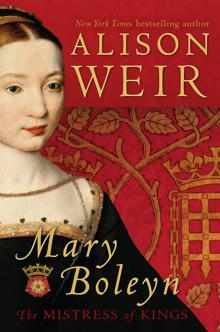 Mary Boleyn
Mary Boleyn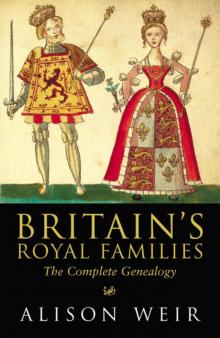 Britain's Royal Families
Britain's Royal Families The Tower Is Full of Ghosts Today
The Tower Is Full of Ghosts Today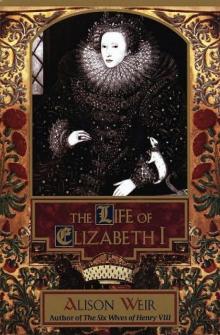 Life of Elizabeth I
Life of Elizabeth I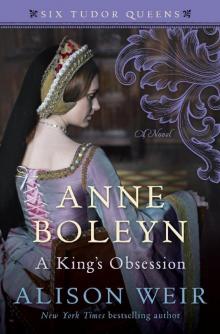 Anne Boleyn A King's Obssession
Anne Boleyn A King's Obssession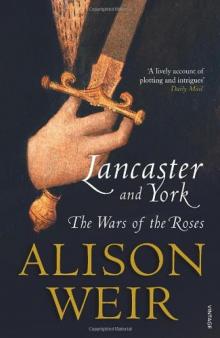 Lancaster and York
Lancaster and York Jane Seymour, the Haunted Queen
Jane Seymour, the Haunted Queen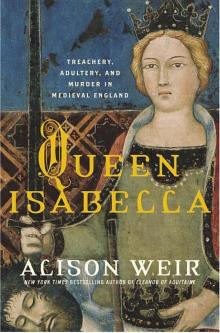 Queen Isabella
Queen Isabella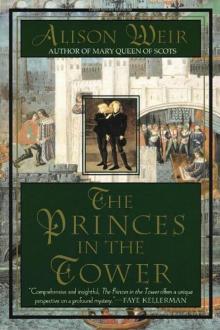 The princes in the tower
The princes in the tower